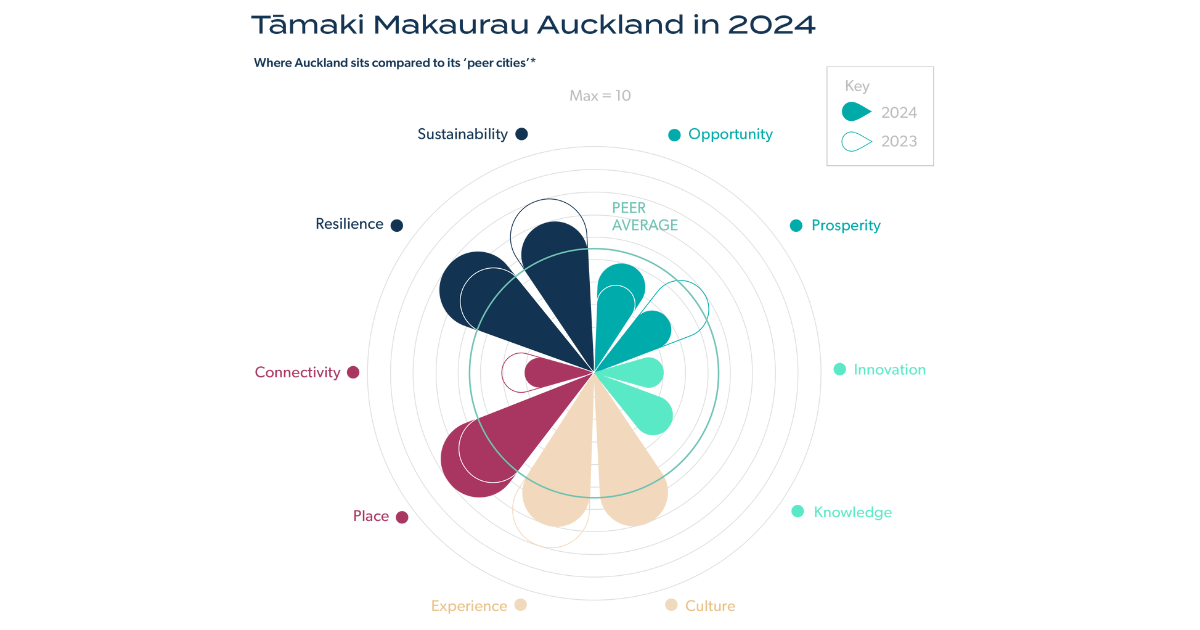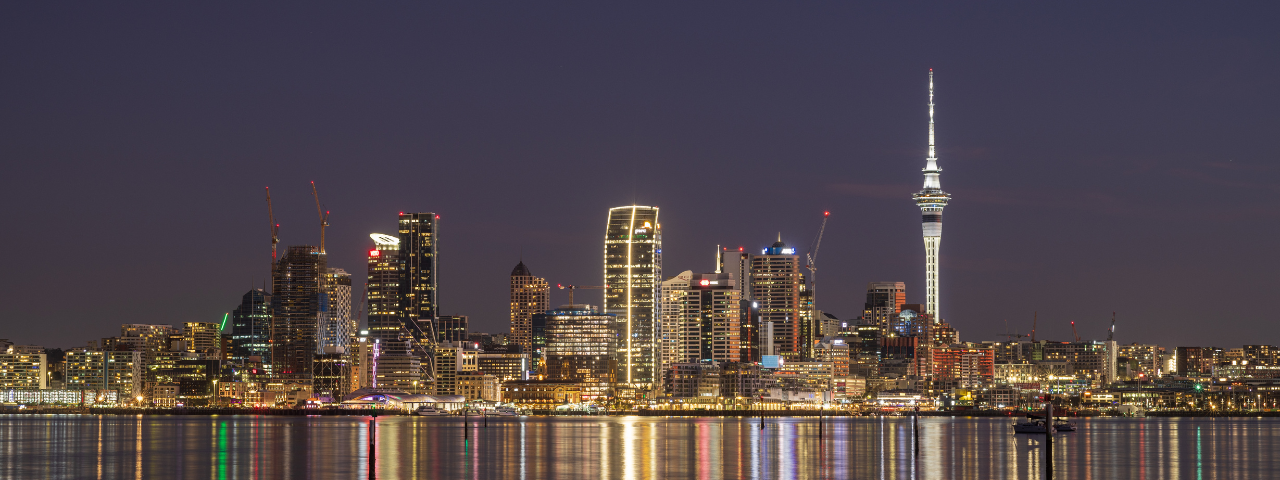What does The State of the City 2024 report measure?
The report provides an analysis of Auckland’s performance relative to its international ‘peers’ of a similar size and location, across five key pillars — opportunity and prosperity, innovation and knowledge, culture and experience, place and connectivity, and resilience and sustainability.
Each pillar includes Auckland’s performance at glance, and includes strengths, challenges and risks, and where performance can be raised going forward.
In 2024, the report also explores innovation, brand identity and diversity in more depth, and considers what Auckland needs to do to improve in these areas.
The State of the City report was commissioned by Committee for Auckland, in partnership with Deloitte and Tātaki Auckland Unlimited.
How is Tāmaki Makaurau Auckland performing on the world stage?
How is Auckland faring on the issues that shape cities’ competitiveness, appeal and resilience? Download The State of the City 2024 report.
How does Auckland compare among a high calibre group of global peer cities?

Auckland’s strengths, challenges and direction
In this high calibre group of cities, all renowned for their lifestyle and prosperity, Auckland is up in 3 areas and down in 4. Auckland’s challenges are distributed across several broad themes rather than concentrated in any one area.
Auckland sees progress in opportunity, place and resilience, driven by robust corporate demand and work-life balance advantages, which see Auckland reinforces its role as a globally significant job centre.
However, its decline in prosperity points to the city’s high cost of living, lower productivity and an increase in unemployment, all damaging Auckland’s reputation for liveability.
Gaps in Auckland’s urban experience are showing, as reflected by the decline in the experience and sustainability pillars. Infrastructure deficits, slower progress towards decarbonisation and affordability and safety concerns all emerge as competitive challenges for the city to address to improve its position.
Relative to the other cities, its biggest gaps remain in innovation, knowledge and connectivity. These reflect improvements and investments taking place in other cities, combined with cumulative effects of under-investment in Auckland that require deliberate and sustained catch-up. Auckland’s appeal and its ability to reliably deliver prosperity depends on progress in these areas.
The report highlights that Tāmaki Makaurau Auckland has one of the largest proportions of indigenous population across world cities, contributing to a unique identity and significant broader diversity. However, Auckland’s indigenous strength and diversity are not leveraged enough to support the city’s global brand identity, which has declined in the last decade, particularly in the areas of business and investment.
Acknowledgements
Thanks to The State of the City lead contributors Dr Tim Moonen, Jake Nunley, Borane Gille and Benjamin Lahai-Taylor at The Business of Cities — an urban intelligence firm providing data and advice to 100 global cities, companies and institutions.
This report also benefited from the guiding inputs of The State of the City Steering Group, as well as research input from Tātaki Auckland Unlimited.
The New Zealand Government’s Auckland Policy Office and Koi Tū: The Centre for Informed Futures at Auckland University are also insight partners in The State of the City report.
